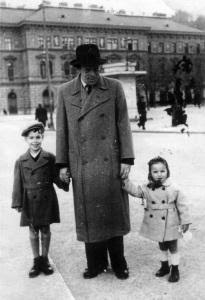What some of reviews say:
Gouch’s writing style is picturesque. It is filled with glorious anecdotes and written with fiction-like narrative flair and its overall impact is a beautiful story, notwithstanding the trauma it describes
Nicolette Snowden, Eras Journal, published by Monash University
Exceptional times call for extraordinary measures and Gouch takes a complex true story and delivers an exceptional chronicle.
Rama Gaind, PS News
Beautifully written, I found this memoir both compelling and moving.
Amanda Hampson best selling author
The sweeping events of 20th Century Europe confront familial love, chance and fate in this beautifully written treatment of ordinary lives in extraordinary times. …. But it all stops too soon! Can’t wait for the next instalment.
Richard Matheson, goodreads
Thoroughly enjoyable! This is a beautifully crafted memoir. The skill of the writer is evident on every page.
Lee-Anne, goodreads
This is a story that had to be told: ripples of history from a unique time and place via one family’s journey from the ravages of World War II in Transylvania to the desert fringes of the fledgling state of Israel and, for the narrator, on to Australia. Gouch’s voice is at once elegiac and compassionate. Her love of the natural world paints the landscapes through which she has travelled.
Marilla North, freelance journalist
The book is available at Amazon, Barnes & Noble, Book Depository, Booktopia and others. In Australia, you can order it from good bookshops eg. In Sydney Abbeys https://www.abbeys.com.au/
In the USA the book is also available in a number of university libraries eg. Stanford, Harvard, Michigan


